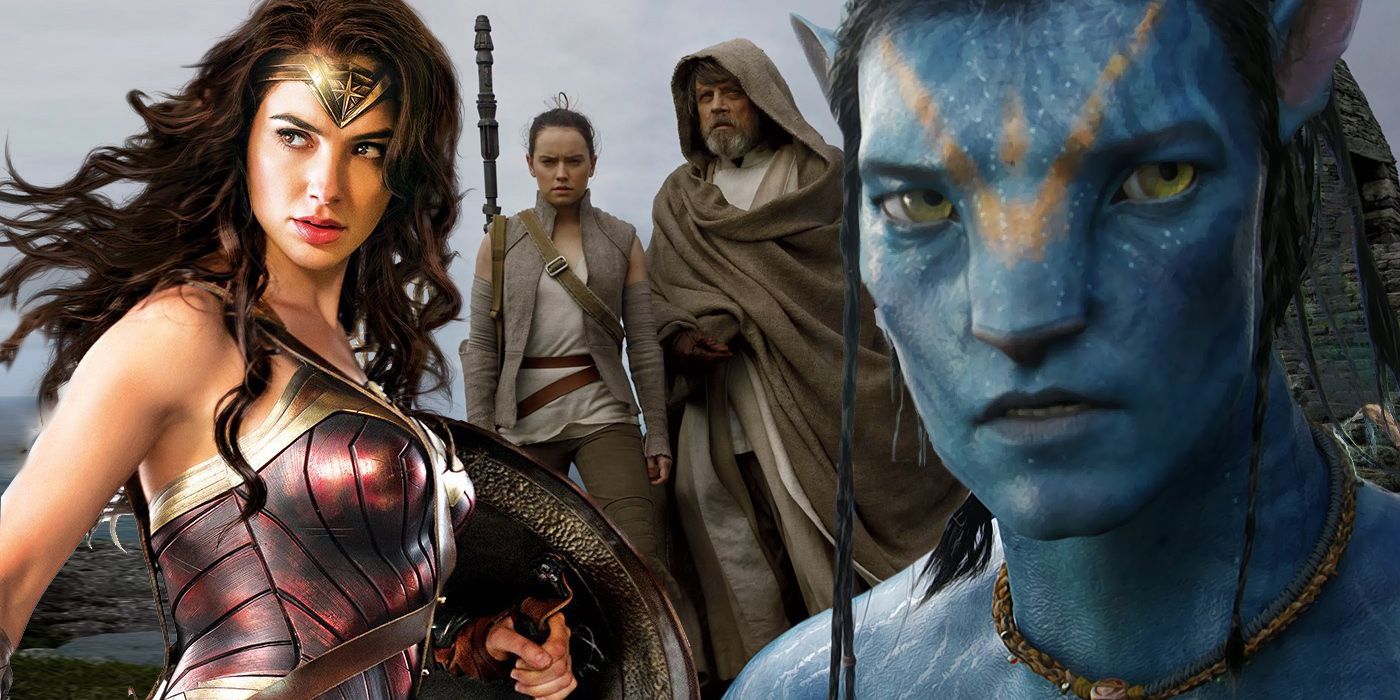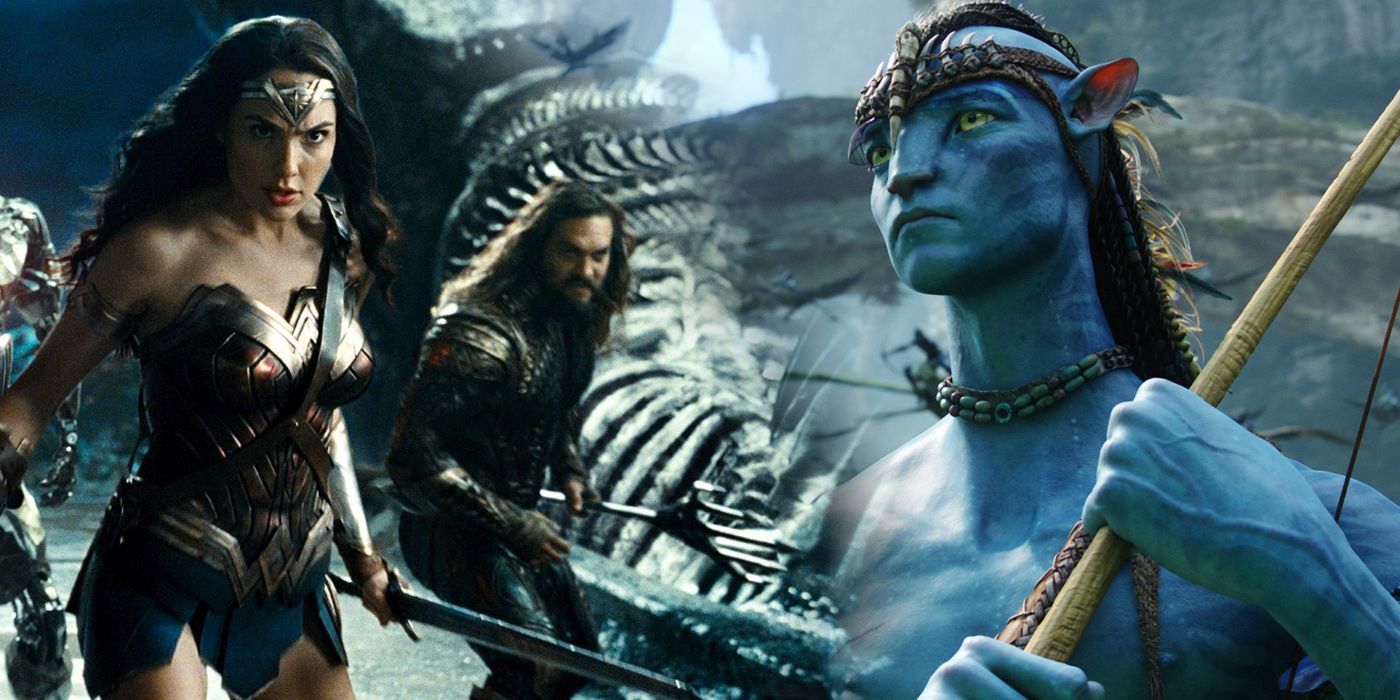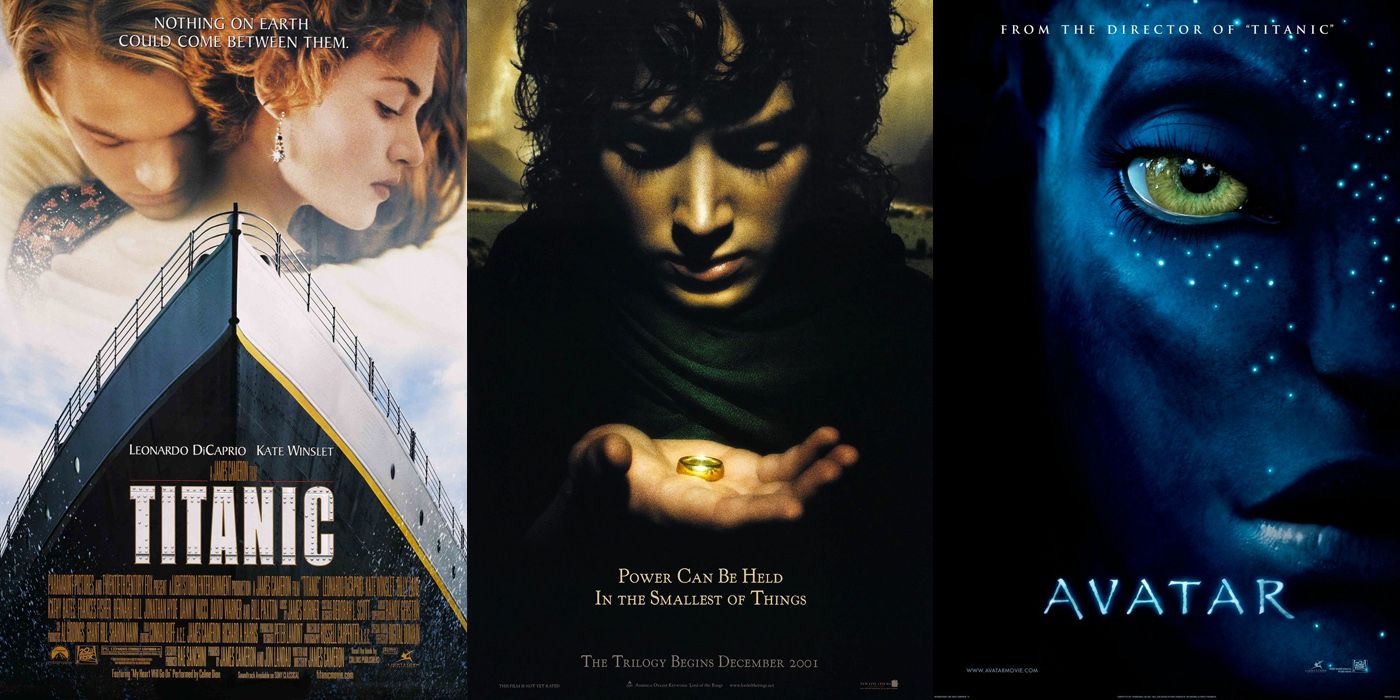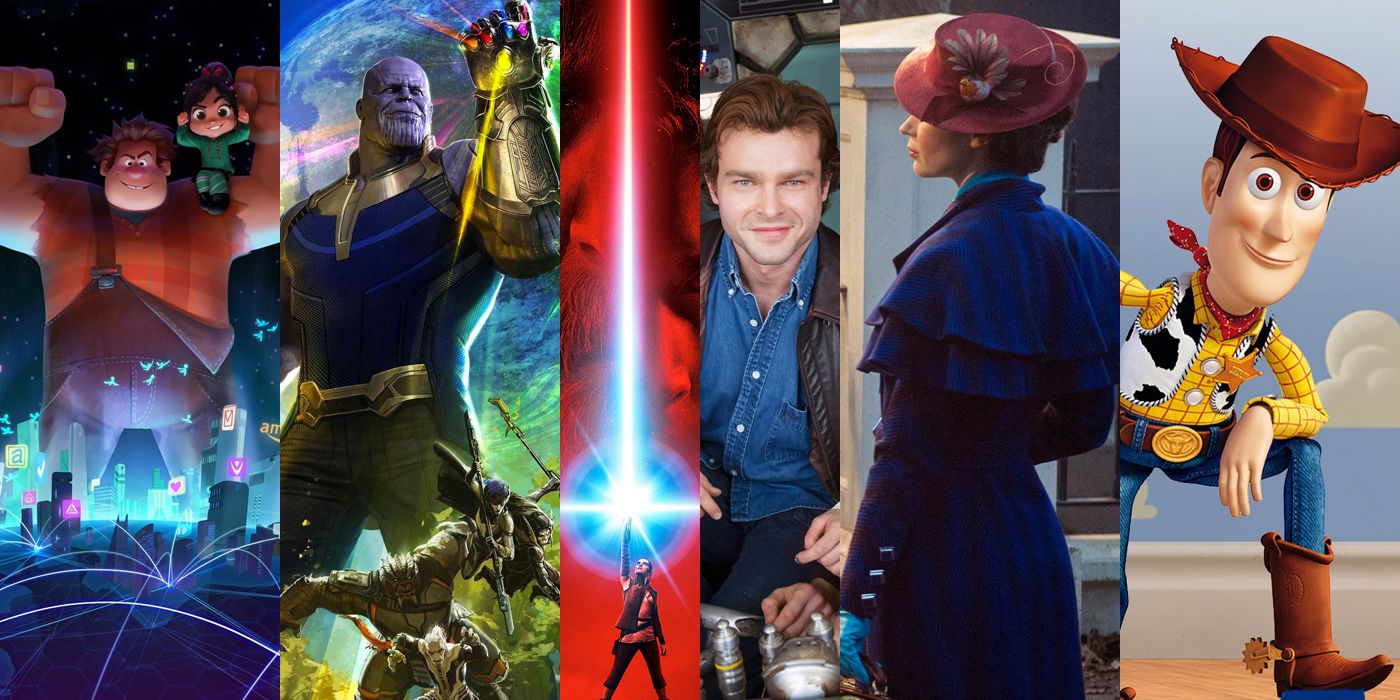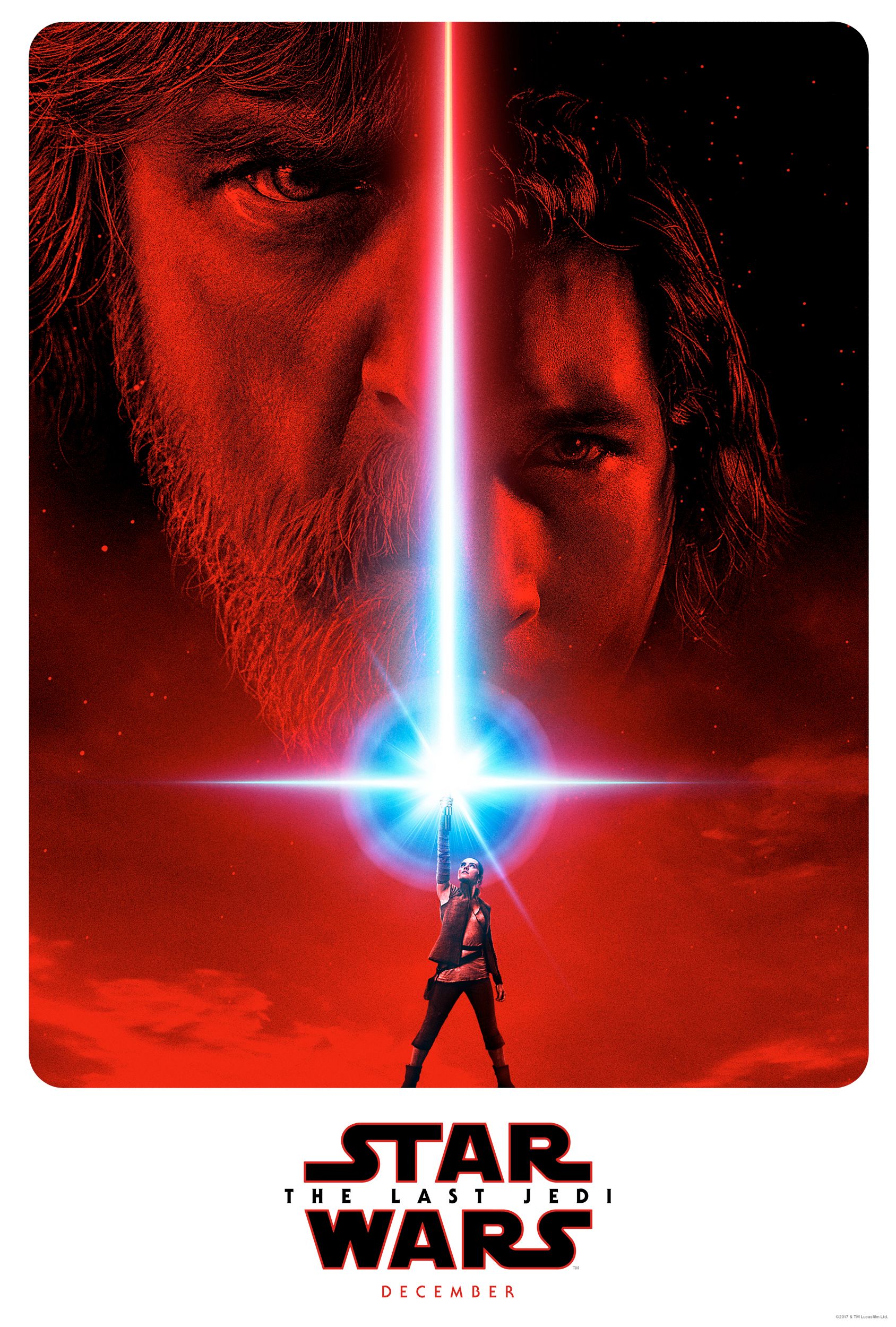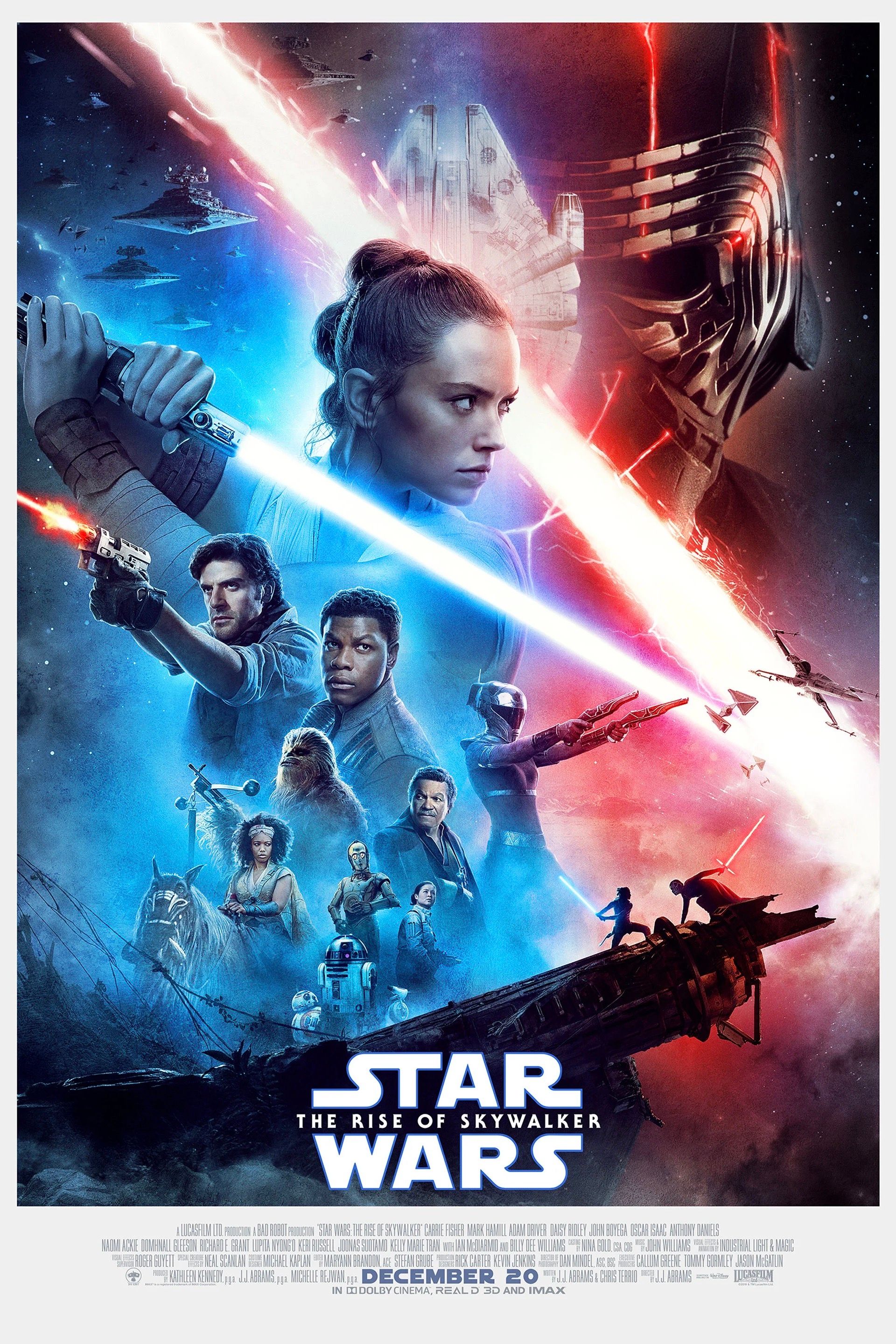Since it returned triumphantly with The Force Awakens in 2015, Star Wars has become synonymous with a Christmas release - but after The Last Jedi this December that's going to change.
Despite major behind-the-scenes rumblings, Han Solo is still aiming for May 2018 and Star Wars 9 is locked in for the same month in 2019. And there's little room for last minute maneuvering to Christmas: December 2018 has already filled up with Peter Jackson's franchise-starter Mortal Engines, the year's lone DCEU entry Aquaman and Disney's own holiday release Mary Poppins Returns, while Warner Bros. has just placed Wonder Woman 2 on December 13, 2019, the date you'd have expected Episode IX to land should it move. Add that Avatar 2 and 3 are slated for December 2020 and 2021 respectively (years yet to have Star Wars films officially announced) and it's looking like Lucasfilm has lost its short-lived stranglehold on the pre-Christmas box office that has made the franchise return so successful.
And make no mistake: while nostalgia and a deft marketing campaign were essential in helping Episode VII crack $2 billion, it feels like a large portion of that success needs to be accounted to its release window. December 2015 was completely devoid of remote competition (the previous major film was The Hunger Games: Mockingjay – Part 2 in early November), meaning for the entire month up to release the film could market itself with no real distractions and, subsequently lacking any competition, hit with the biggest opening of all time (a record that looks unlikely to be toppled domestically). However, the window also gave it legs; after it arrived we were entering the January drought, leaving a good month where it was the single major tentpole in town. The only serious competition came from Oscar fare, and with that audience you're typically dealing with minimal overlap or people who attend the cinema above average; The Force Awakens was the tenth-biggest seller of 2016, a year it wasn't even released in.
To make clear this wasn't a fluke, Rogue One - a story that would a decade ago have been a little-read piece of EU fiction - made $1 billion off a very similar release strategy. The Last Jedi is set to repeat that this year, likely to strong-albeit-not-greater-than-Awakens money. This has led to a bigger game plan clearly crafted around these December dates; allowing for Episode VII's hard sell in the wake of ten decades of prequel hate, each of the movies has been marketed in a very similar way (teaser in Spring, behind-the-scenes reel in July, second look late Summer, final trailer Fall) and production has fallen in line too - the movie-after-next starts production once the promotional blitz for the current release is done.
How Star Wars Lost Christmas
But after that they're shifting back to May releases, which bring with it competition from the rest of the summer lot, some of it incredibly direct: Solo will now have to arrive not only under criticism of its core idea and the fact it lost directors shortly before the end of production but just three weeks after Avengers: Infinity War and six days before Deadpool 2 in some territories, while two years out Episode IX already has five major tentpoles in the month around it. And it's obviously hurting that tightly woven schedule, with Solo under heavy time constraints even before the director change.
To suggest box office struggles would be fruitless and frankly wrong, but this is nevertheless a major change to perceived Disney Star Wars formula. We already talked about how Solo would have to deal with a shorter window between films when Aquaman sealed off December 2018 but it's now clear Episode IX won't be moving either; thanks to the same franchise, no less. Indeed, it seems like Warner Bros. are trying to mark out Christmas as their prime DCEU slot, similar to what Marvel's done with the first weekend of May and second of July, with pushing out Star Wars a nice bonus.
While a competitive release wouldn't lead to Episode IX's failure, being a sequel to Summer 2017's biggest movie means Wonder Woman 2 is a definite challenge. Some may argue that because Diana's core appeal is to older and female audiences, traditionally underrepresented demographics, it's playing to a different audience. However, that ignores the logic of four-quadrant mega-tentpoles and that Lucasfilm has invested a lot of time into diversifying the series' appeal, something this would totally nullify.
Moving ahead, Avatar is harder to fight. Again, Star Wars would probably win a box office battle, but both films' take would be vastly hurt by competition caused by releases even a few weeks apart. No Star Wars movies have been announced for 2020 or 2021 - in fact, that we haven't yet heard about a new spinoff suggests we aren't getting one in the former year at least - but if Lucasfilm do have plans they wouldn't at this point challenge James Cameron's dependable behemoths (which look a fair bet to make those dates this time - unlike previous missed releases, the movie is now in production).
December is now locked up all the way through to 2022, forcing Lucasfilm's hand and for the first time since The Force Awakens' early box office predictions came in put the studio on a back foot. Or has it?
Next Page: [valnet-url-page page=2 paginated=0 text='Is%20This%20All%20Part%20Of%20Lucasfilm%27s%20Plan%3F']
December Was Always Going To Become Competitive
December is a long-standing prize month for reasons already discussed. This unknown advantage was first highlighted as an ideal space for a mega-blockbuster with Titanic and later proven by The Lord of the Rings. Since then Avatar and The Hobbit have used it to great success. In the wake of what will be a Star Wars triple-whammy, there was always going to be a rush to claim the month and short of Lucasfilm locking up the pre-Christmas week by announcing release dates well into the next decade (something they wouldn't do as whether they'll be doing annual projects isn't set at this point) someone would get in eventually.
Indeed, as releases diversify and move away from peak summer season - May, once a prize month thanks in part to the original Star Wars trilogy, has become overpopulated and in recent years seen as many bombs as hits - we're seeing all times of year become battlegrounds. Summer starts earlier each year and Fantastic Beasts, Justice League, Thor and Doctor Strange have all circled Fall dates; it was only a matter of time before December became as hot - and subsequently competitive - as June. So in some ways, while Star Wars still faces problems, Lucasfilm is avoiding having to show down against big hitters (studios tend to put slate highlights out in December).
It's worth at this point making clear that Christmas releases weren't always the plan for the Star Wars reboot. The Force Awakens and The Last Jedi were both originally set for May, the same month the previous six movies had been very profitably released in; the former only moved due to production delay (and that was a compromise, with J.J. Abrams wanting to push to Summer 2016), and it was only when Rogue One (which was never dated beyond the year previously) was put in December and the latter shifted following Episode VII's box office smash that this even became read as a game plan. And it seems that wasn't actually the case.
Star Wars As Part Of The Disney Machine
Thus far we've talked of the DCEU and James Cameron stealing December, but that ignores that Lucasfilm had every opportunity over the past couple of years to claim 2018 and 2019; uncontracted dibs don't exist in Hollywood, but this is the closest you can get. As such, this feels less like a loss and more a conscious decision.
Releasing Han Solo in May definitely seems to be the result of corporate maneuvering considering fellow Disney production Mary Poppins Returns was the first major film to lock itself into December 2018. Star Wars 9 is seemingly then put in May to avoid too long a gap between films, but may be a sign of something more. No Star Wars movie will make more than The Force Awakens; unless the series breaks China there's a ceiling to how many people can really turn out. And, given Rogue One's unprecedented billion, it seems like Lucasfilm believes there's also a pretty strong floor too; Star Wars has proven its appeal to a modern, multi-generational audience. As such, the business decision may have been made to transfer the bankable hype into a more competitive period to increase Disney's market dominance.
Infinity War being in May with Han Solo guarantees the studio the two biggest films in one of the biggest months of the year, while 2019 offers a triple-tap of Avengers 4, Star Wars 9 and Toy Story 4 - while leaving December to be scrapped over by too many franchises to be really viable. Put this in the wider context of Disney dependably releasing a live-action film in March - either an animation remake or fresh property like A Wrinkle in Time - the aforementioned Marvel set dates, Pixar in June and their homegrown animated efforts in November and you have year-round exposure.
Star Wars As A Merchandising Empire
Ignoring the Mouse overlords and honing in on just Lucasfilm and the specific brand, however, there's still a clear advantage. Star Wars is more than just movies - it has been ever since George Lucas negotiated the licensing rights from Fox in lieu of a director's fee. As such, the series has so many other spinning plates that can influence decisions, perhaps no more than merchandise. And this is one area where a late-year release doesn't help. While there's Force Friday and an overall massive push for toys related to the new release, real interest in a new unproven film - i.e. a Star Wars Story - isn't stoked until the movie arrives; which in December is too late for the Christmas buying season.
Based on comments by industry commentators, it appears that Rogue One toys sold lesser than The Force Awakens last Christmas despite Jyn, Cassian and co. simultaneously cleaning up at the box office. And it's not hard to see why: Rey, Finn, Poe, BB-8 and Kylo were proven icons by this point, but nobody really knew of Jyn until twelve days before the big present giving day. A move to summer ensures hype for the right movie is being drummed up, proving demand well in advance and ensuring placement of new product on Christmas lists. When you have annual rotation this is essential.
-
It's easy to balk at Star Wars losing Christmas after such strong success - even adjusted for inflation The Force Awakens neatly eclipses The Phantom Menace - but to make those claims ignores that the movie series is just one part of a much bigger multimedia franchise, which is in turn just one cog in a massive conglomerate. Star Wars doesn't need December - a return to the homestead of May may actually be the best move.

